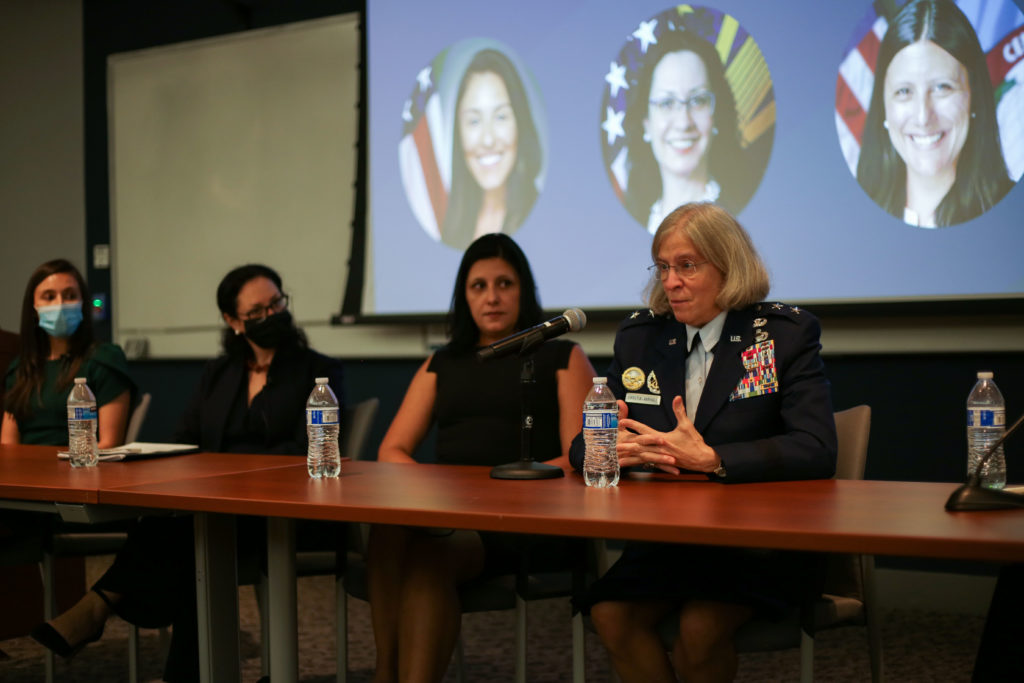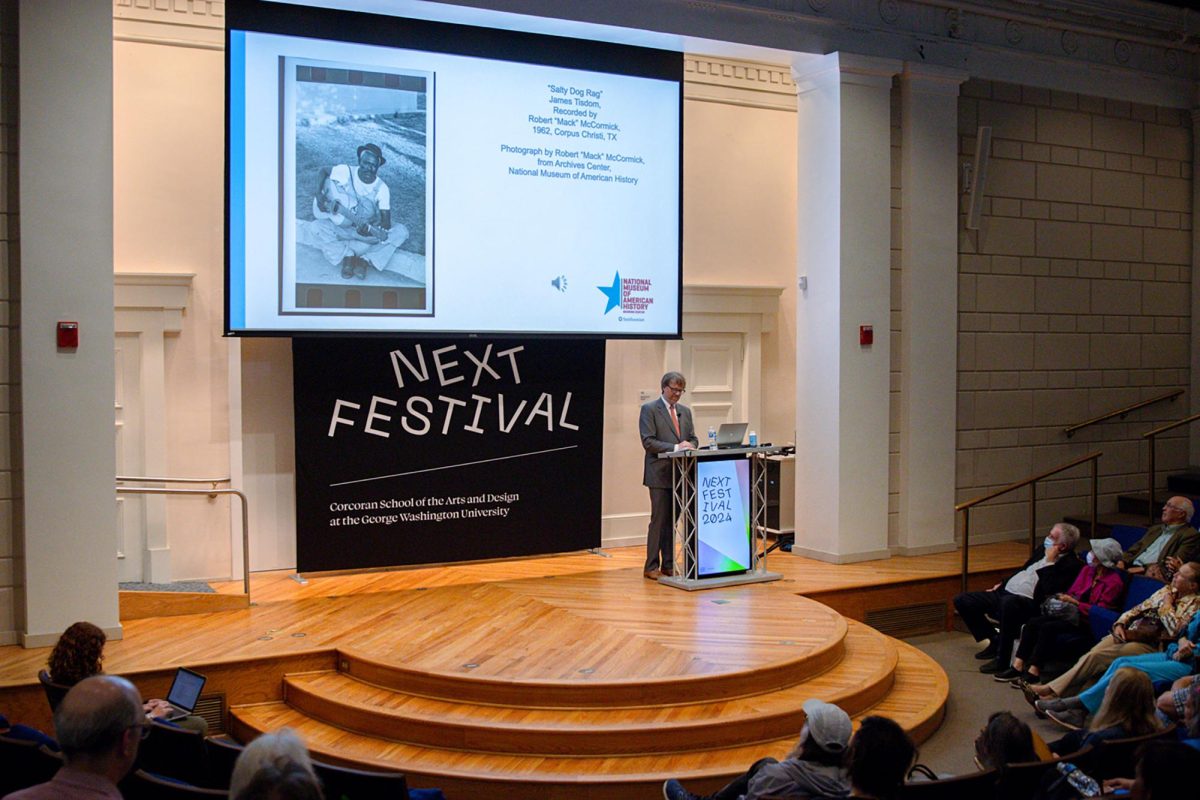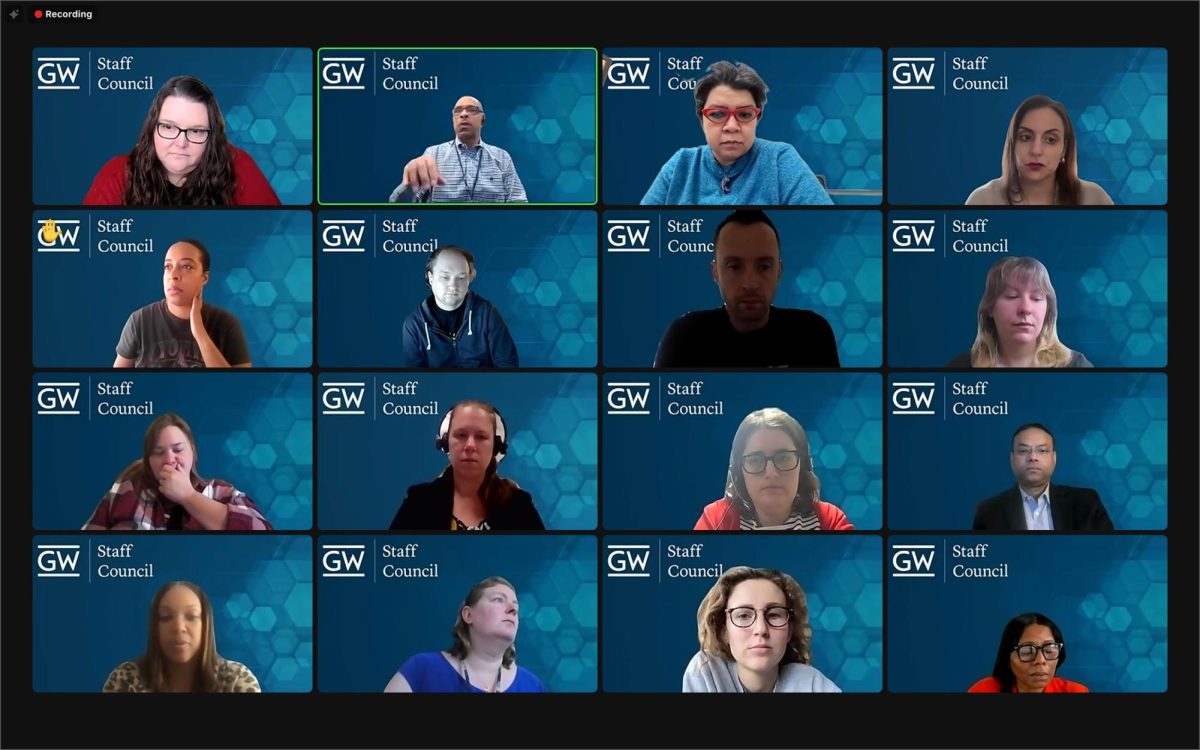A panel of experts in national security spoke about the issues they faced as Latinas in politics and policy at the Elliott School of International Affairs Thursday.
The panel discussed the lack of Latina representation in national security and the challenges of being a Latina in the workplace and beyond. The discussion, inspired by one of the panelists’ essays of the same name, consisted of four prominent Latinas in national security.
The event was hosted by the University, the Cisneros Hispanic Institute Leadership Institute, the Elliott School of International Affairs, the Graduate Student Services, Air and Space Forces Association, the D.C. Student Consortium on Women Peace & Security, GW Military and Veteran Services, GW Campus Living & Residential Life, LATAM @ GW and the Hispanic Empowerment & Advancement Team.
Tahina Montoya, the special assistant to the assistant secretary of the Air Force Multi-lingual, International Affairs Strategist & Women, Peace and Security Expert, said often being the only Latina in the room at her job was “a whole mix of emotions.”
“When you’re the only Latina in the room, it feels very powerful and that’s quickly overcome by confusion,” said. “I begin to wonder why I’m the only Latina in the room, and then that quickly turns into a sense of responsibility.”
Fabiana Sofia Perera, a professor at the William J. Perry Center for Hemispheric Defense Studies at the Department of Defense, discussed how coming back to the U.S. was a culture adjustment from growing up in Venezuela.
“We also have an exhausting sense of trying to think, what do I do with my accent? How do I say my name?” Sofia Perera said.
Major General Linda Urrutia-Varhall, the director of operations at the National Geospatial-Intelligence Agency, said she shared a similar experience. She said at points in her career, she was not only the sole Latina in the room, she the only woman in the room.
“So I quickly had to become comfortable being uncomfortable,” Urrutia-Varhall said.
Montoya said the politicization of intersectionality, a framework for understanding how someone’s various identities can create discrimination or privilege, is holding diversity back within national security.
“If you’re using certain types of words then you’re automatically affiliated with a certain group,” Montoya said. “I think we have to bring it back to effectiveness, and as the military would call it, readiness. How does having a more diverse group of folks make me get the mission done better?”
Leonor Tomero, the commissioner at the Congressional Commission on the Strategic Posture of the United States and former deputy assistant secretary of Defense for Nuclear and Missile Defense, said one of the lessons she’s learned throughout her career is the importance of change.
“You only get the progress if you make change,” Tomero said. “But often what changes is incremental.”
Shifting to public participation, most of the questions the panelists accepted from the audience focused on career networking and finding a voice in places where you feel like your voice doesn’t matter.
Urrutia-Varhall said those who hope to be in the national security field to take advantage of the declining phase of COVID-19 and network in-person.
“Push for that initial face-to-face meeting,” Urrutia-Varhall said. “There’s nothing like face-to-face.”










